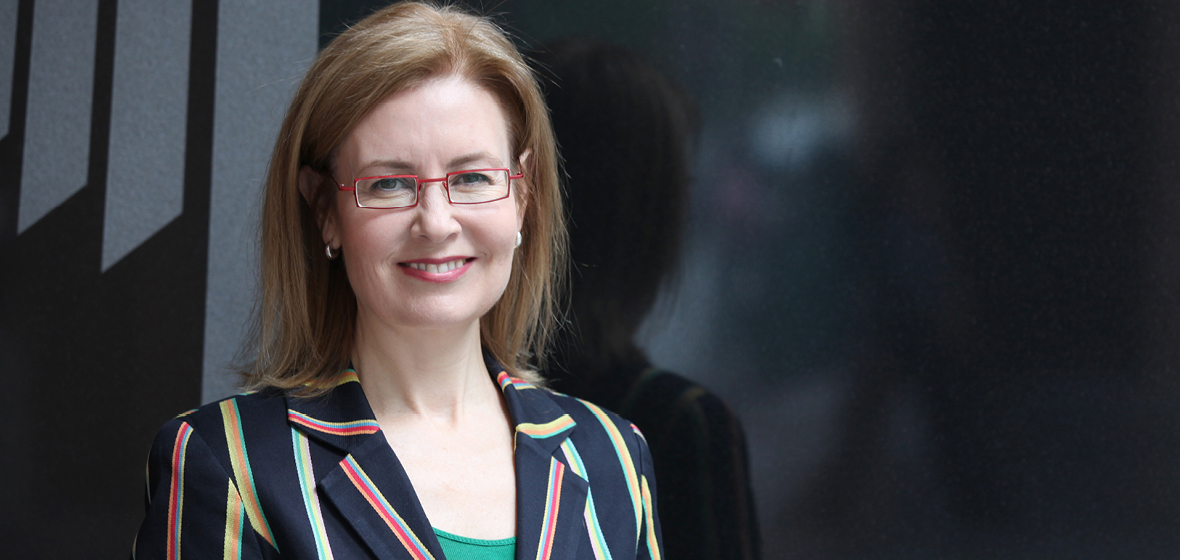Outgoing NSW MP Gabrielle Upton did not think too much about being the state’s first female Attorney General on the day she was sworn into the role in April 2015. But seven years and two portfolios later, Upton discusses her proudest and darkest moments in the role.
Carefully placed on a bookshelf inside Gabrielle Upton’s neat office at NSW Parliament House are three wristbands in red, yellow and black.
They are keepsakes; given to her by relatives of the lost Bowraville children: Colleen Walker-Craig, 16, Evelyn Greenup, 4, and Clinton Speedy-Duroux, 16, who all disappeared within a matter of months from the same road in Bowraville, NSW between 1990 and 1991. As NSW Attorney General in 2016, Upton asked the NSW Court of Criminal Appeal to order a retrial of the man who had been acquitted of two counts of murder, so that a trial on all three crimes could be heard together.
“I believed that there [was] a case and that it should be given a hearing in the Supreme Court. It is in the interest of justice in the broader sense,” Upton says.
“There was kind of a pivotal moment there where I said, ‘I’m going to do this’.
“When you’re in government, and if you’re lucky enough to be a minister, you have two or three years in which to make an impact and you can do a number of things which bring your own personal passions to it.”
On the Bowraville appeal, one of the most significant matters during her tenure as Attorney General, which spanned from the result of the 2015 State Election until January 2017: “I had been puzzling about what I thought was an opportunity that had been missed at that point to give the families an opportunity to see justice done in the legal system around the probable murders of three young children.”
The case was impeded by the double jeopardy principle – the man had been acquitted of two of the crimes – despite a NSW law change years earlier, under a different government in 2006, that cases could be retried if “fresh and compelling” evidence emerged.
The NSW Court of Criminal Appeal rejected the bid and the case went all the way to the High Court, which in 2019 refused the government’s special leave application to appeal against the decision.
“That was disappointing, but we know the systems … it’s the rule of law. It may not throw out the answer that satisfies everyone’s quest for justice,” Upton says.
“[Bowraville] had had a very difficult history in our government. Four or five years had passed, and the process was incredibly excruciating for the family. I could see that when I met with them on a number of occasions.
“It was that balance between wanting to provide the openings that were there for them and feeling this sense of frustration; knowing the processes hadn’t really delivered much to them except another process. So that’s where it all ended … the end of it represented an exhaustion of the judicial process. And that is an exercise of justice.”
Balancing the opinions of the legal profession, talkback radio and tabloids, and the voting public is an exercise which can cause many in the portfolio to perspire. In recent years, reforms to the Bail Act, mandatory minimum sentences following a spate of ‘one punch’ killings in Sydney, and ‘no body, no parole’ orders have frequently seen the community, the media and many officers of the court hold opposing views.
“The Attorney General has been that kind of accessible face between the rule of law and representative of the people of NSW,” Upton says.
“You’re seen as a bit of a gateway. It is your role to explain things, and in terms that seem real to people.
“When it comes to things like the Bail Act, you can’t fail to acknowledge the impact that has on the person or the family, when somebody’s been off on bail, and they’ve done something else they shouldn’t have done. But at the same time … you’re also trying to explain a system that can be wrong sometimes.
“Sometimes there can be a public perception that that’s going soft on crime. So, you know, you’re walking this balance. I think the most important thing you do, although you’ve got to be practical and pragmatic as a politician, is to remember the institution which you are protecting.”
To this day Upton remains the only female to have held the role of the state’s first law officer (Current NSW Attorney General Mark Speakman took over the portfolio in January 2017 and has remained in the job ever since). As the legal profession becomes more vocal about the need to increase the involvement of women at the highest levels of law, the significance of Upton’s appointment more than seven years ago has given her cause to reflect.
“I was Family and Community Services Minister [at the 2015 election] and I had no idea what my next portfolio would be. I didn’t have a lot of time to prepare,” she recalls.
“So, did I think of in those terms [of being the first female]? No, I was more like, ‘what a privilege to be Attorney General’. Of course, I have felt privileged to be the first woman NSW Attorney General. But I didn’t really think about a lot when I was in the role to be frank,” she says.
Advocating for women to scale the senior ranks of the legal profession is important to her, including in NSW Government agency briefs. Upton says. In a 2019 piece for LSJ she discussed the need “to work our equitable briefing targets hard.”
“With more than half the state’s law graduates being female, equity dictates we have to remove the barriers preventing them from securing these senior roles,” she wrote.
“The Law Council of Australia, various law societies, bar associations and law firms have all implemented policies, targets and reporting mechanisms to achieve this. Like most effective reform, it requires incremental steps and for everyone to step up. Targets alone do not guarantee success – we must make our targets sweat.”
Another focus during her time as Attorney General, which coincided with the Royal Commission into Institutional Responses to Child Sexual Abuse, was the child sexual offence evidence pilot, measures that aimed to reduce the difficulties and stresses of court proceedings for child witnesses without infringing on an accused’s right to a fair trial. The program began in the Sydney and Newcastle District Courts in 2016 and includes pre-recorded evidence, specially trained Judges, and toys in the witness room to help ease anxiety.
A public campaign is now underway to expand the initiative.
“In the justice system you want a system that helps these young people give evidence. It’s hard enough to get to that point to have the evidence to be able to lay charges,” Upton says.
“But when they get there, you don’t want them to be a victim, again, of the system. What can you do to support them? And the idea was not a court advocate, but to have somebody who was a trained psychologist, for example, who would sit with them in court, not coach them. They are there to explain the context why they are having to [give evidence].
“They are a victim once you don’t have to be the victim twice. Let’s give them a little bit of assistance, with somebody who will hold their hand who’s independent, and can be custodian I suppose, of their wellbeing within the court. Let’s give them the opportunity to give their evidence outside of court, so the formality is less for them.”
Upton will officially retire from politics at the 2023 State Election on 25 March. Former TV journalist Kellie Sloane has been officially selected as the Liberal Party’s candidate for the seat.
“I don’t have regrets. I’ve had some amazing times, I’ve had some really dark times,” Upton says, adding she hopes to continue to use her legal skills in the public policy space.
“I have the utmost respect for the public sector. The departments I’ve worked with been fantastic, particularly [the now Department of Communities and Justice] because they feel the real weight of what they do. They’re well credentialed, intelligent, really, really good people.
“They make sure that the ideas that come through the paradigm of the government of the day, that those ideas get carried forward in a formal way. I’m very grateful for the work they do, and they’re often not given the gratitude they deserve.”




